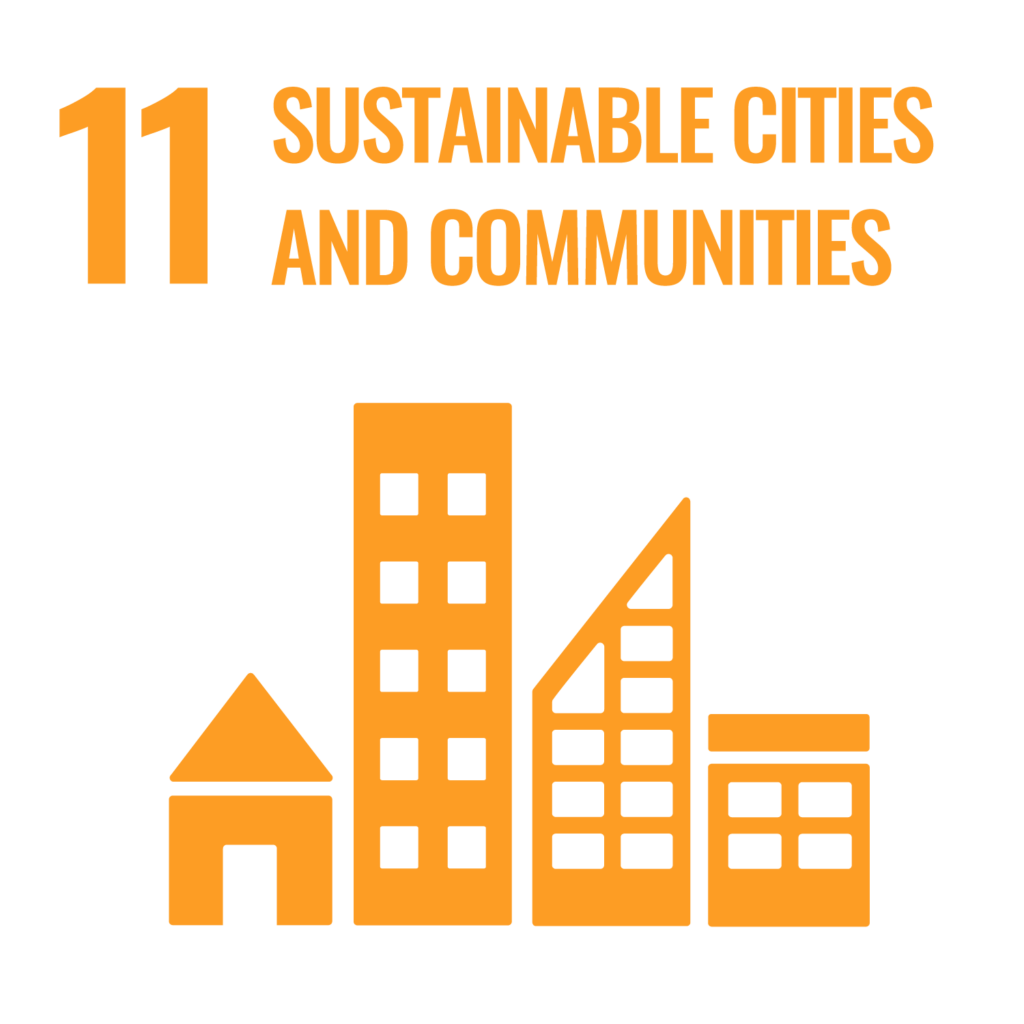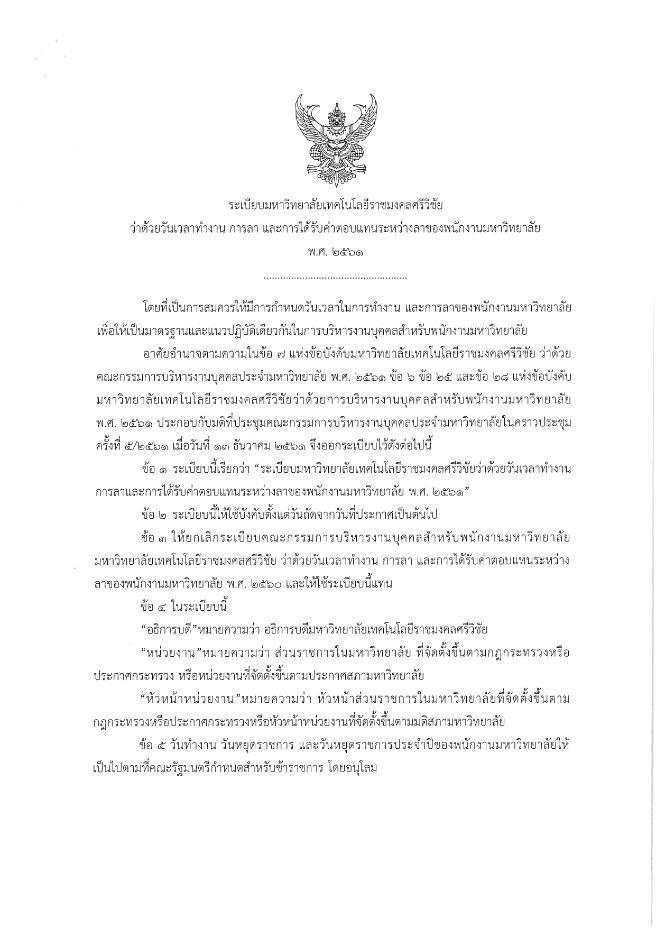Reporters: Dr. Jaray Suwannachart, Asst.Prof.Dr. Tachaya Sangkakool, Asst.Prof.Surawat Moogem and Tussawan Thong-on
Evidence Date: January-December, 2023
Related Indicators: 11.3.2
Details:
Rajamangala University of Technology Srivijaya has established a comprehensive operational plan and budget allocation of 1,970,000 baht for the fiscal year 2022, specifically aimed at promoting and preserving cultural heritage, including arts and cultural legacy. The university’s objectives focus on fostering professional practitioners who can contribute to societal advancement at the regional level through innovative practices. Additionally, it aims to translate research, inventions, innovations, and creative works into practical applications that drive economic and social progress within the region.
Moreover, the university is committed to enhancing the quality of life for communities in a sustainable manner by integrating innovative solutions. This includes efforts to conserve and create value for cultural heritage and the environment, ensuring that traditional practices are preserved while adapting to contemporary needs. Lastly, the university aspires to become a modern organization that leverages innovation in its management practices, thus setting a benchmark for excellence in the academic and cultural sectors (see in table1).
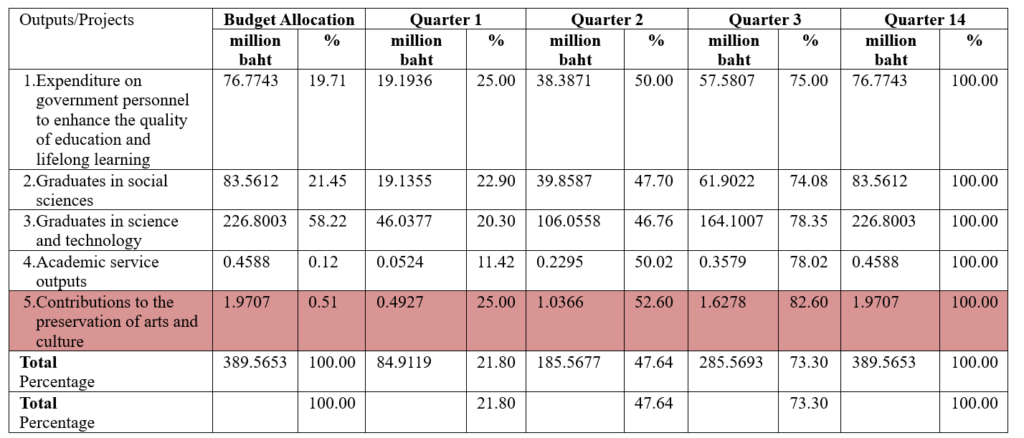
The operational plan and budget allocation by Rajamangala University of Technology Srivijaya for promoting and preserving cultural heritage is poised to have significant impacts on both the university and the broader community. By investing in arts and cultural initiatives, the university not only fosters a sense of pride and identity among local populations but also enhances the social fabric of the region. This approach encourages collaboration between academic practitioners and local communities, which can lead to the development of professional skills and innovative practices that address regional challenges.
Additionally, the university’s focus on translating research and creative works into practical applications can stimulate economic growth and development. As cultural heritage initiatives gain momentum, they can attract tourism and create new job opportunities, ultimately benefiting local businesses and enhancing the overall quality of life for residents. By prioritizing sustainable practices in cultural conservation, the university also contributes to long-term environmental stewardship, ensuring that cultural assets are preserved for future generations while promoting a modern, innovative approach to heritage management.
In addition, Rajamangala University of Technology Srivijaya has established an operational plan and budget allocation of 1,627,000 Baht for the fiscal year 2023 to support initiatives aimed at preserving cultural heritage (arts and cultural heritage). This funding is intended to achieve several key objectives: producing a high-quality specialized workforce that meets the demands of target industries, fostering research, inventions, and innovations that provide social benefits or create commercial value, offering innovative academic services to contribute to sustainable development, and promoting the continuity of cultural heritage through creative practices (see in table2)
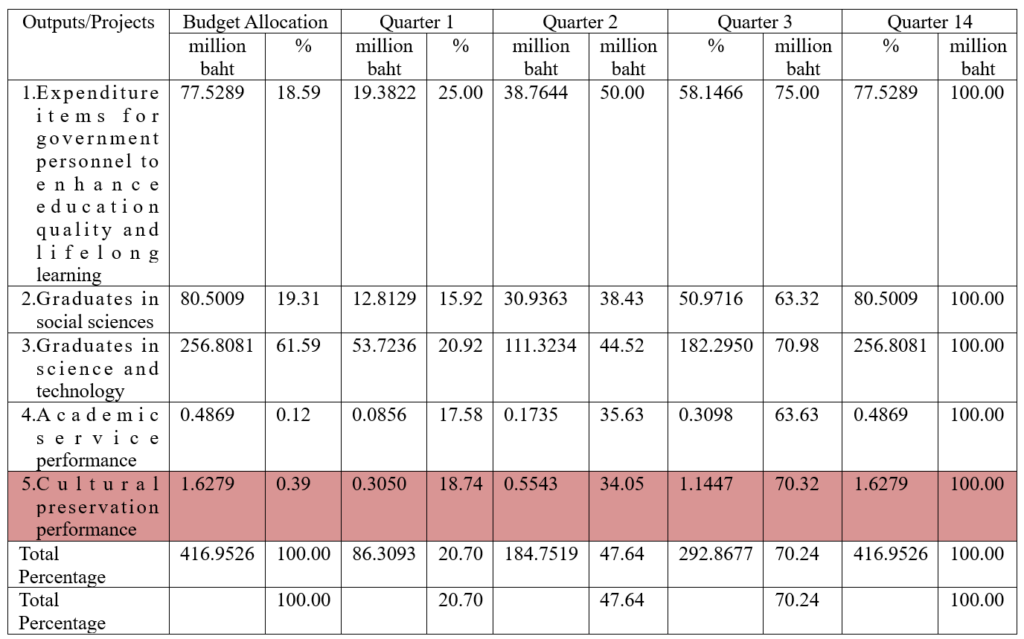
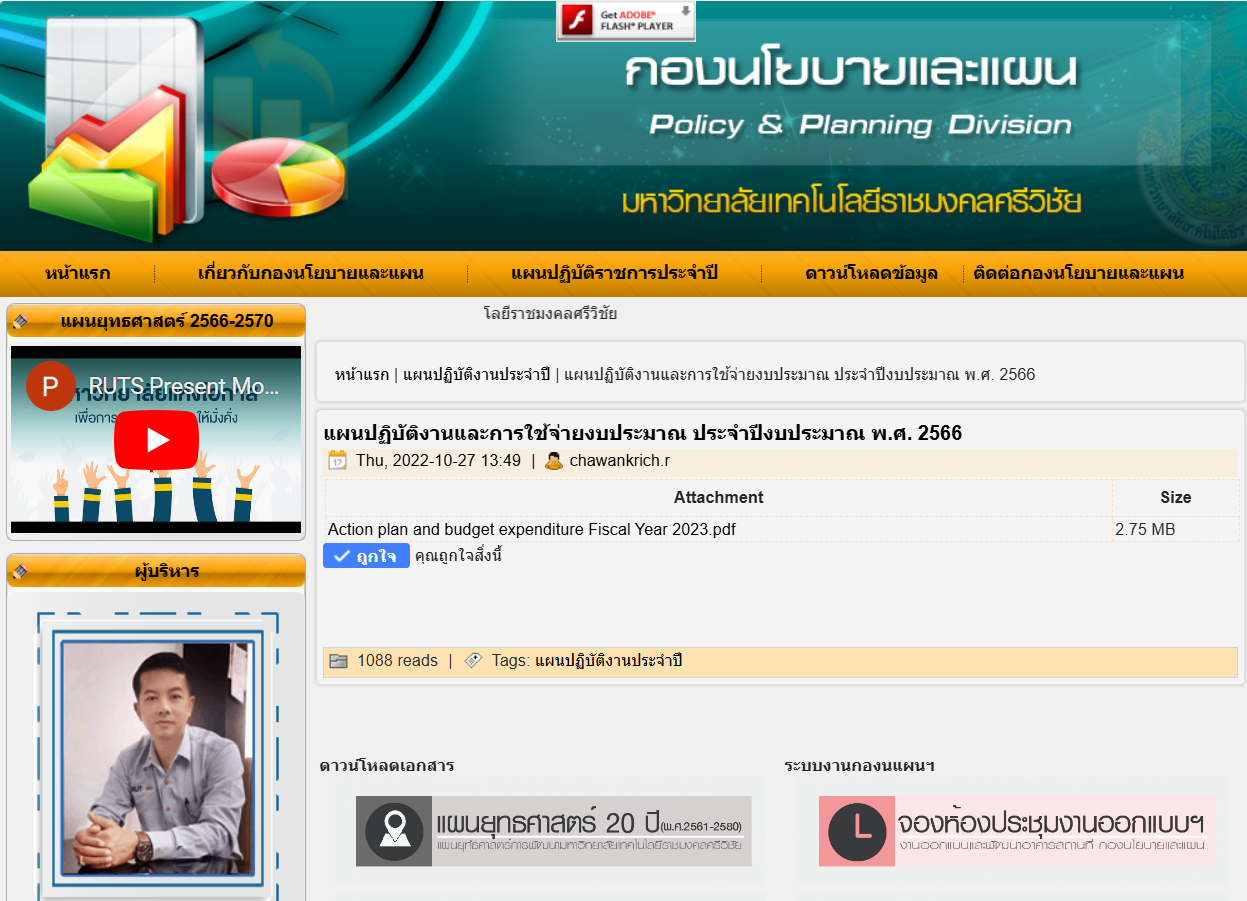
The impact of Rajamangala University of Technology Srivijaya’s initiatives to allocate a budget for cultural heritage preservation is multifaceted. Firstly, by investing in the development of a specialized workforce, the university not only enhances the employability of its graduates but also ensures that the industries crucial to the nation’s economic growth are adequately supported. This aligns with national priorities and strengthens regional economies.
Additionally, the emphasis on research and innovation aims to bridge the gap between academic knowledge and practical application, leading to inventions that can benefit society and generate commercial opportunities. By providing academic services rooted in sustainability, the university contributes to a culture of responsible development, ensuring that economic progress does not come at the expense of cultural and environmental integrity. Furthermore, fostering a creative approach to cultural heritage allows for the preservation and celebration of local traditions, promoting social cohesion and identity while enhancing the community’s overall quality of life.
Related Links: https://plan.rmutsv.ac.th/node/473

